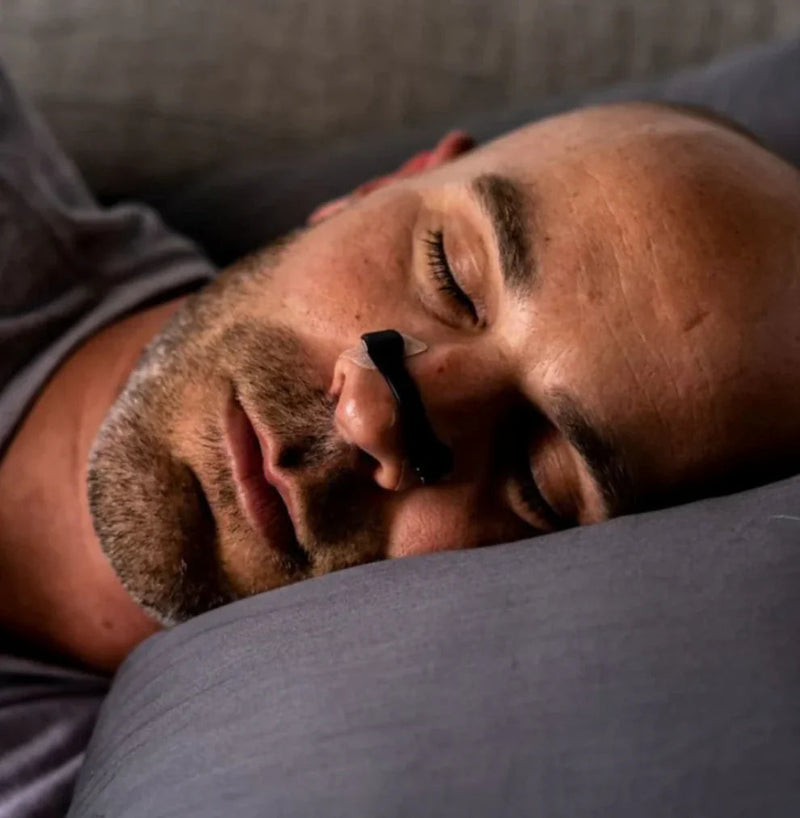
Let’s be honest—snoring is the sleep version of a chainsaw in a library. Whether it’s you or your partner keeping the house awake, the good news is that there are plenty of ways to reduce (or even eliminate) snoring. But here’s the catch: there’s no one-size-fits-all solution. Snoring isn’t just about noise; it’s about airflow, muscle relaxation, and even your sleeping position.
So, if you want to wake up feeling refreshed (and avoid getting elbowed in the ribs at 3 AM), let’s dive deep into how to stop snoring naturally, improve breathing, and optimize your sleep quality.
1. Understanding Why You Snore
Snoring happens when airflow is partially blocked, causing vibrations in your throat tissues. This can happen due to:
-
Nasal congestion (hello, stuffy nose!)
-
Mouth breathing (often linked to weak tongue posture)
-
Obstructed airways (narrow throat passages or excess tissue)
-
Poor sleeping position (back sleeping = gravity pulling everything backward)
-
Alcohol or sedatives (relaxing muscles a little too much)
-
Weight gain (extra tissue around the neck can restrict airflow)
The good news? You don’t have to just live with it.
2. How to Breathe Better (and Stop Snoring Along the Way)
Breathing well isn’t just about oxygen—it’s about efficiency. Here’s how to optimize your breathing for better sleep:
a) Nose vs. Mouth Breathing
Mouth breathing is a major snoring culprit. Nasal breathing is king when it comes to proper airflow and oxygenation. To encourage nasal breathing:
-
Try nasal dilators like Breave Magnetic Nasal Strips, which gently open nasal passages.
-
Use saline sprays or a neti pot before bed to clear congestion.
-
Practice the Buteyko Method, a breathing technique designed to train nasal breathing and reduce snoring.
-
Consider a mouth tape (yes, really) to encourage nose breathing at night.
b) Strengthen Your Airway Muscles
Like any other muscle, your tongue and throat can be trained to be stronger, which can reduce airway collapse at night. Some exercises include:
-
Tongue Slides: Place your tongue against the roof of your mouth and slide it back repeatedly.
-
Pronouncing “Ng” sounds: (like singing) Strengthens the soft palate.
-
Balloon Blowing: Helps increase airway muscle tone.
3. Optimizing Your Sleep Position to Prevent Snoring
Gravity is not your friend when it comes to snoring. Here’s how to position yourself for silent slumber:
-
Side sleeping is the MVP of snoring prevention. If you struggle to stay on your side, a body pillow can help.
-
Elevate your head slightly with an adjustable pillow (or bed) to keep airways open.
-
Try a positional therapy device—there are snoring belts and pillows designed to keep you from rolling onto your back.
4. Gadgets & Products That Actually Work
If you’re serious about stopping snoring, investing in the right tools can make all the difference.
Nasal Solutions:
-
Breave Magnetic Nasal Strips – Designed to gently open nasal passages for better airflow.
-
Breathe Right Strips – Similar to Breave but adhesive-based.
-
Mute Nasal Dilators – Reusable silicone dilators that expand the nostrils.
Mouth & Jaw Solutions:
-
Breave Anti-Snore Mouthguard – A mandibular advancement device that repositions the jaw to keep airways clear.
-
ZQuiet Mouthpiece – A similar anti-snoring mouthguard with a flexible hinge.
-
SomniFix Mouth Tape – Helps keep the mouth closed to encourage nasal breathing.
Lifestyle Fixes That Help More Than You Think
-
Lose a few pounds if needed – Excess weight, particularly around the neck, worsens snoring.
-
Stay hydrated – Dehydration thickens mucus, increasing snoring.
-
Avoid alcohol & sedatives before bed – They relax throat muscles too much.
-
Use a humidifier – Dry air can irritate nasal tissues.
-
Quit smoking – Tobacco inflames the airway and increases mucus production.
5. Advanced Snoring Fixes: If Nothing Else Works
If you’ve tried everything and still sound like a lawnmower, it might be time to explore medical interventions:
-
CPAP (Continuous Positive Airway Pressure) Therapy – The gold standard for sleep apnea sufferers.
-
Surgical Options – Procedures like UPPP (Uvulopalatopharyngoplasty) or Inspire therapy (a nerve-stimulating implant) can permanently open airways.
-
Orthodontic Treatments – If jaw alignment is the issue, a sleep orthodontist might recommend a custom mouthpiece.
Final Thoughts: The Road to Quieter Nights
Stopping snoring isn’t just about peace and quiet—it’s about better sleep, better breathing, and waking up feeling actuallyrefreshed. While quick fixes like the Breave Magnetic Nasal Strips or the Breave Anti-Snore Mouthguard can help instantly, the key is a holistic approach: better breathing habits, the right sleep posture, and lifestyle tweaks that support long-term results.
So, next time your partner gives you that look in the morning, you’ll have a game plan. Here’s to quieter nights and better mornings!


0 comments